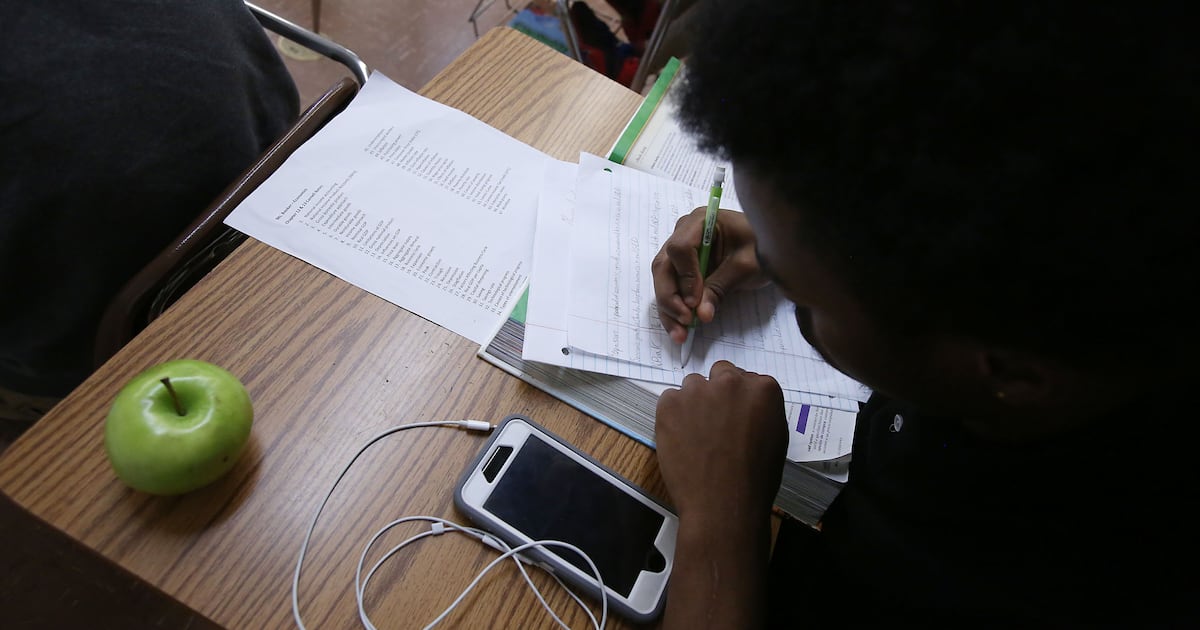Reflecting on the tenets that shape our educational practices is fundamental for …
Hochul and Banks request additional feedback before finalizing school cellphone policy
Jennifer Livingstone

City and state officials are currently in the process of gathering information to determine how to handle the issue of cellphones in schools, with the potential consideration of a ban.
New York Governor Kathy Hochul initiated a statewide listening tour on Monday, which will involve consultations with administrators, educators, and various stakeholders in the upcoming months to shape a smartphone usage policy for schools across the state, set to be revealed later this year.
During a citywide meeting for principals, New York City schools Chancellor David Banks disclosed to school leaders that the Education Department is still conducting research, suggesting a temporary halt shortly after hinting at an imminent significant announcement on a citywide school cellphone policy.
Principals were requested to fill out a survey on cellphones at the beginning of the meeting, inquiring whether they currently confiscate phones and if they intend to implement a cellphone regulation for the upcoming school year, as outlined by school officials.
A Pew Research survey conducted in June discovered that 72% of high school teachers nationwide view cellphone-related distractions as a significant issue in their classrooms. Additionally,
Concerns among educators and families revolve around the adverse mental health impact. “The Anxious Generation,” penned by Jonathan Haidt, a social psychologist at New York University’s Stern School of Business and a parent in New York City public schools, advocates for phone-free educational environments. Haidt recommends parents refrain from providing smartphones to students before high school and prohibit social media usage before the age of 16.
Contrary voices from educators and parents contend that schools should educate children on responsible phone usage instead of enforcing bans. Teachers and parents revealed that parents often call or text their children during school hours, leading to disruptions. One parent shared experiences of her daughter having to handle urgent calls for college or scholarship applications during school hours.
According to a report by DNAinfo, the school system’s cellphone ban was lifted in 2015 by former Mayor Bill de Blasio due to concerns regarding inequities. Subsequently, the Education Department permitted schools to create their own policies, resulting in a diversity of regulations across schools in the five boroughs.
While some schools have formulated policies prohibiting phones, enforcing these rules in practice is a challenge for teachers. Various schools collect and store phones during school hours, while others utilize Yondr pouches for students to store their phones securely throughout the day.
Notably, one-third of New York City high schools implement Yondr pouches, double the number from the previous year, as reported by the company. The pouches cost around $25 to $30 per student, with pricing varying based on school size. Yondr anticipates a significant increase in pouch utilization both in New York City and beyond.
Chanan Kessler, a special education instructor at Bronx Health Sciences High School, revealed that his school introduced Yondr pouches last school year. Despite this initiative, students found ways to circumvent the system, displaying challenges in enforcing policies effectively.
Kessler conducted an experiment to evaluate compliance with the pouches, noting that approximately 70% of students had their phones easily accessible. He observed students exchanging phones with those from other schools, using dummy phones, or breaching the pouches to access their devices.
Faced with such challenges, Kessler expressed concerns about the enforcement of cellphone policies falling on teachers. He emphasized the difficulties of enforcing rules when students view their phones as an integral part of themselves, highlighting the prevalent resistance among students.
Despite these obstacles, Kessler acknowledged that even partial compliance with the pouches was better than no regulation at all, sending a clear message about cellphone restrictions to students.


